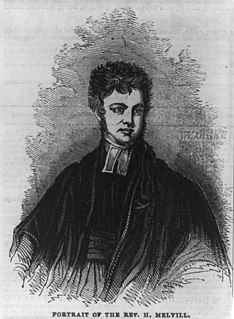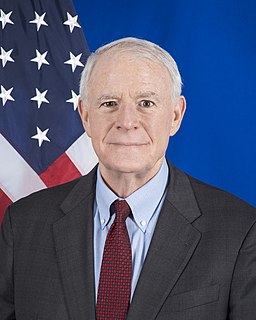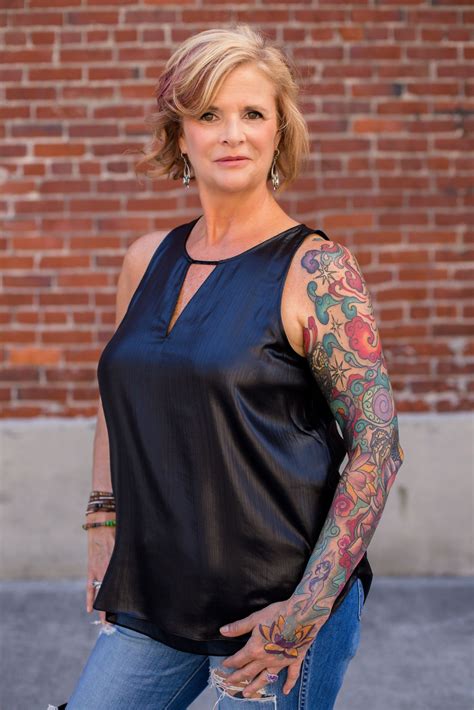A Quote by Henry Melvill
We cannot live only for ourselves. A thousand fibers connect us with our fellow men; and among those fibers, as sympathetic threads, our actions run as causes, and they come back to us as effects.
Related Quotes
As we live our human lives, let us be like the water. Let us be conscious of the flow. Let us not forget the great ground of being that draws us on through life. Let us live in a knowing hope, aware that all being is in transition, that all movement is back to the source. Let us treat those around us as reminders of our illusionary individuality. We know that they are us and we are them connected in ways we cannot fathom. Let us grow in compassion for all beings, for they share our journey.
We've teamed up with some Japanese companies to, basically by 2010, make all our clothing out of recycled and recyclable fibers. And we're going to accept ownership of our products from birth to birth. So if you buy a jacket from us, or a shirt ,or a pair of pants, when you're done with it, you can give it back to us and we'll make more shirts and pants out of it.
My brethren, let me say, be like Christ at all times. Imitate him in "public." Most of us live in some sort of public capacity-many of us are called to work before our fellow-men every day. We are watched; our words are caught; our lives are examined-taken to pieces. The eagle-eyed, argus-eyed world observes everything we do, and sharp critics are upon us. Let us live the life of Christ in public. Let us take care that we exhibit our Master, and not ourselves-so that we can say, "It is no longer I that live, but Christ that lives in me."
You know I think so many of us live outside our bodies. My dream is that people will find a way back home, into their bodies, to connect with the earth, to connect with each other, to connect with the poor, to connect with the broken, to connect with the needy, to connect with people calling out all around us, to connect with the beauty, poetry, the wildness.
It is possible to be honest every day. It is possible to live so that others can trust us-can trust our words, our motives, and our actions. Our examples are vital to those who sit at our feet as well as those who watch from a distance. Our own constant self-improvement will become as a polar star to those within our individual spheres of influence. They will remember longer what they saw in us than what they heard from us. Our attitude, our point of view, can make a tremendous difference.
Although our moral conscience is a part of our consciousness, we do not feel ourselves on an equality with it. In this voice which makes itself heard only to give us orders and establish prohibitions, we cannot recognize our own voices; the very tone in which it speaks to us warns us that it expresses something within us that is not of ourselves.
The question of what we are can only be answered by ourselves. We each decide what we are by the life choices we make. How we were made, who are parents are, where we are from, the color of our skin, who we choose to love, all those things do not define us. Our actions define us, and will keep defining us until even after death.
Our assaults on the ecosystem are so powerful, so numerous, so finely interconnected, that although the damage they do is clear, it is very difficult to discover how it was done. By which weapon? In whose hand? Are we driving the ecosphere to destruction simply by our growing numbers? By our greedy accumulation of wealth? Or are the machines which we have built to gain this wealth-the magnificent technology that now feeds us out of neat packages, that clothes us in man-made fibers, that surrounds us with new chemical creations-at fault?
The vicarious responsibility for things we have not done, this taking upon ourselves the consequences for things we are entirely innocent of, is the price we pay for the fact that we live our lives not by ourselves but among our fellow men, and that the faculty of action, which, after all, is the political faculty par excellence, can be actualized only as one of the many and manifold forces of human community.




































